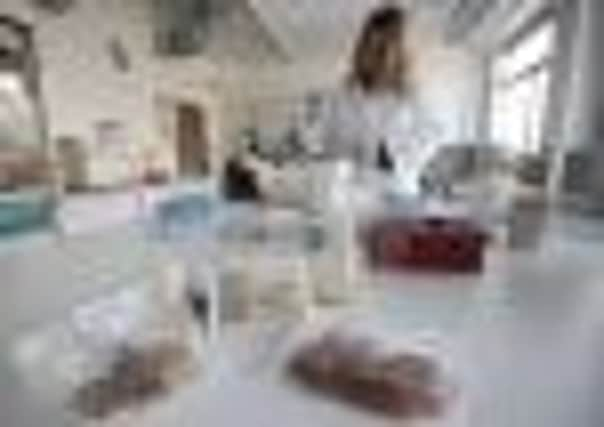House of Commons’ pies DNA-tested for horsemeat


As the Food Standards Agency (FSA) widened its investigation, the parliamentary authorities admitted four beef products had been withdrawn from the heavily subsidised restaurants used by MPs, peers and staff.
A Commons spokesman said the products withdrawn were steak and kidney pie, beef and onion pie, steak and kidney suet pudding, and beef Italian meatballs.
Advertisement
Hide AdAdvertisement
Hide AdHe added that the move was “precautionary”, after one of the House of Commons’ suppliers, Brakes, announced it was carrying out tests.
“As a precautionary measure, the House of Commons Catering Service has removed from its shelves four beef items supplied by Brakes. This relates to meat derivative products rather than to fresh meat.”
Brakes later announced that all four of the products the House asked it to test for horsemeat DNA were negative.
The news emerged shortly after the FSA said a wider range of products would be checked, include cafe sandwiches, gelatine, stock cubes and other beef-based foods, both pre-packed or loose.
The third phase of testing, due to begin next week, will see a further 150 samples examined for traces of horse DNA, increasing the total products checked to 514 products.
The first phase saw 224 samples of minced beef products – including burgers, mince, sausage or meat balls – checked for horse and pork DNA, while the second, which started last Thursday, involves 140 samples of beef-based ready meals, including lasagne, chilli con carne, cottage pie, ravioli, cannelloni and spaghetti bolognese, being DNA-checked. The sampling for the first two phases is being carried out by 28 local authorities, while sampling for the third phase will be allocated to local authorities across the UK.
The FSA expects to start publishing the results from all three phases by the end of the month.
Earlier, Nestle, the world’s biggest food company confirmed that three of its products were recalled in France, Italy and Spain. They had not been on sale in the UK.
Advertisement
Hide AdAdvertisement
Hide AdThe company said in a statement that it had enhanced its own testing after reports first emerged about the fraudulent mislabelling of beef.
It said: “We are now suspending deliveries of all our finished products produced using beef supplied by a German firm, HJ Schypke, a subcontractor of one of our suppliers, JBS Toledo.
“Our tests have found traces of horse DNA in two products made from beef supplied by HJ Schypke. The levels found are above the 1 per cent threshold the UK’s Food Safety Agency uses to indicate likely adulteration or gross negligence.
“There is no food safety issue, but the mislabelling of products means they fail to meet the very high standards consumers expect from us.
“Therefore we are voluntarily removing two chilled pasta products, Buitoni Beef Ravioli and Beef Tortellini from sale in Italy and Spain immediately, and we will replace them with product confirmed by DNA testing to be made from 100 per cent beef.
“Lasagnes a la Bolognaise Gourmandes, a frozen meat product for catering businesses by Nestle Professional produced in France will also be withdrawn from sale and replaced with product made from 100 per cent beef.”
Nestle confirmed that tests on all of its processed beef products sold in the UK and Ireland, consisting of seven Jenny Craig products and two Gerber baby food products, had confirmed no presence of horse DNA.
Scottish environment secretary Richard Lochhead said the scandal could be a watershed moment with positive consequences for consumers.
Advertisement
Hide AdAdvertisement
Hide AdThe crisis has prompted increased sales of Scotch-labelled produce and a closer interest in where food came from, Mr Lochhead said, in a ministerial statement to MSPs at Holyrood.
“The horsemeat scandal has undermined consumer trust in some parts of the food industry,” he said.
“But it may be a watershed moment in how people think about food, and that could end up being a good thing.
“There’s an absolute need for every step of the food chain to take responsibility for the food it produces and to ensure that Scottish consumers can have total confidence that what they buy is what it says on the label.”